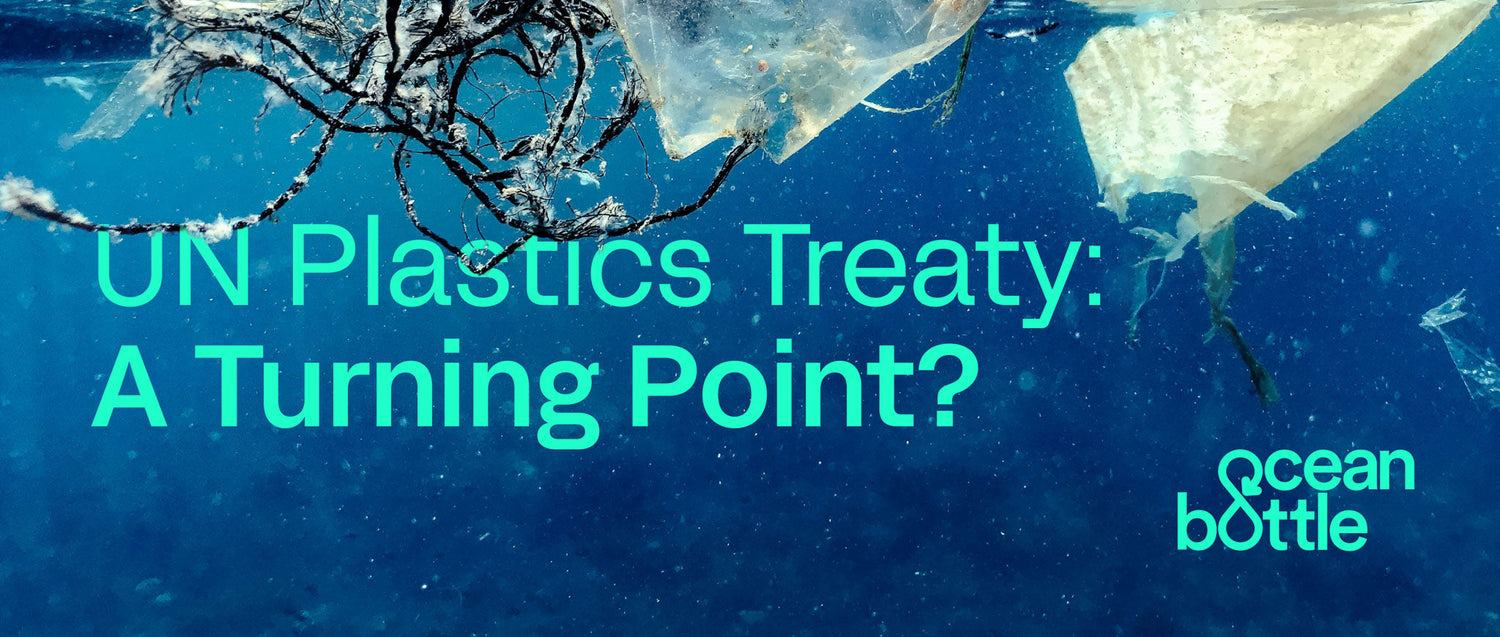Plastic is everywhere: In our oceans, our soil, even in our blood. The world produces more than 460 million tonnes of plastic every year; half of it designed for single use. If nothing changes, by 2050 there could be more plastic in the ocean than fish.
To tackle this crisis, countries are negotiating what could become one of the most significant environmental agreements of our time: the UN Plastics Treaty.
From 5–14 August 2025, representatives from around the world will gather in Geneva for the final round of negotiations of the UN Plastics Treaty, officially known as the International legally binding instrument on plastic pollution.
It’s part of the UN Environment Programme’s push to end plastic pollution, from its production to its disposal, with this round expected to lead to final agreement text that countries can adopt and sign.
When countries sign the treaty, they commit to legally binding rules aimed at reducing plastic pollution across its entire life cycle. That doesn’t mean an outright ban on plastic, but it could mean cutting back on single-use plastics, redesigning products to be safer and more recyclable, disclosing harmful chemicals, and holding big producers and polluters financially responsible through mechanisms like a global fund. For countries with fewer resources, it could also unlock support to build better waste systems and transition toward a circular economy.
Why does this treaty matter now?
The urgency is clear.
Plastic pollution is worsening the climate crisis, endangering marine life, and disproportionately impacting communities across the globe.
A global treaty could set the rules and the accountability to reduce plastic production, redesign products, and build a fairer, circular economy.
But negotiations are also at risk of shifting responsibility from large producers to countries that have the least capacity to manage plastic waste. That’s why the UN’s own human rights experts are calling for the treaty to place people and justice at its core, especially for communities like the collectors we work with, who pick around 60% of the world’s recycled plastic.
Why Ocean Bottle cares
At Ocean Bottle, we don’t just fight plastic pollution, we build business around solving it.
From Cairo to Bali, we’ve seen how the crisis hits hardest in communities least responsible for it.
That’s why this treaty matters. It’s a once-in-a-generation chance to turn off the tap: cutting plastic, scaling reuse, and backing local, circular solutions.
As our co-founder Will Pearson says:
“This isn’t just about pollution. It’s about redefining how business works: profit with accountability.”
Our model proves impact can scale. Now we need policy to match this. The ocean connects us all. Let it connect us in action.
Here are 5 key takeaways from the UN Plastics Treaty
1. It will be legally binding.
Countries will be required to follow new rules to reduce plastic pollution.
2. It targets the full life cycle.
Plastic is to be minimised from production to disposal. It’s not just about the clean up.
3. It must centre around human rights.
Collectors and vulnerable coastal communities in plastic hotspots are to be protected with this treaty.
4. Prevention is key.
The treaty is pushing for safer design, fewer harmful chemicals, and better recycling.
5. Producers will pay.
A global fund could make plastic polluters - such as Coca-Cola - financially responsible, and could equally help support countries with fewer resources.


